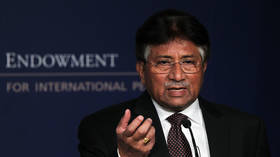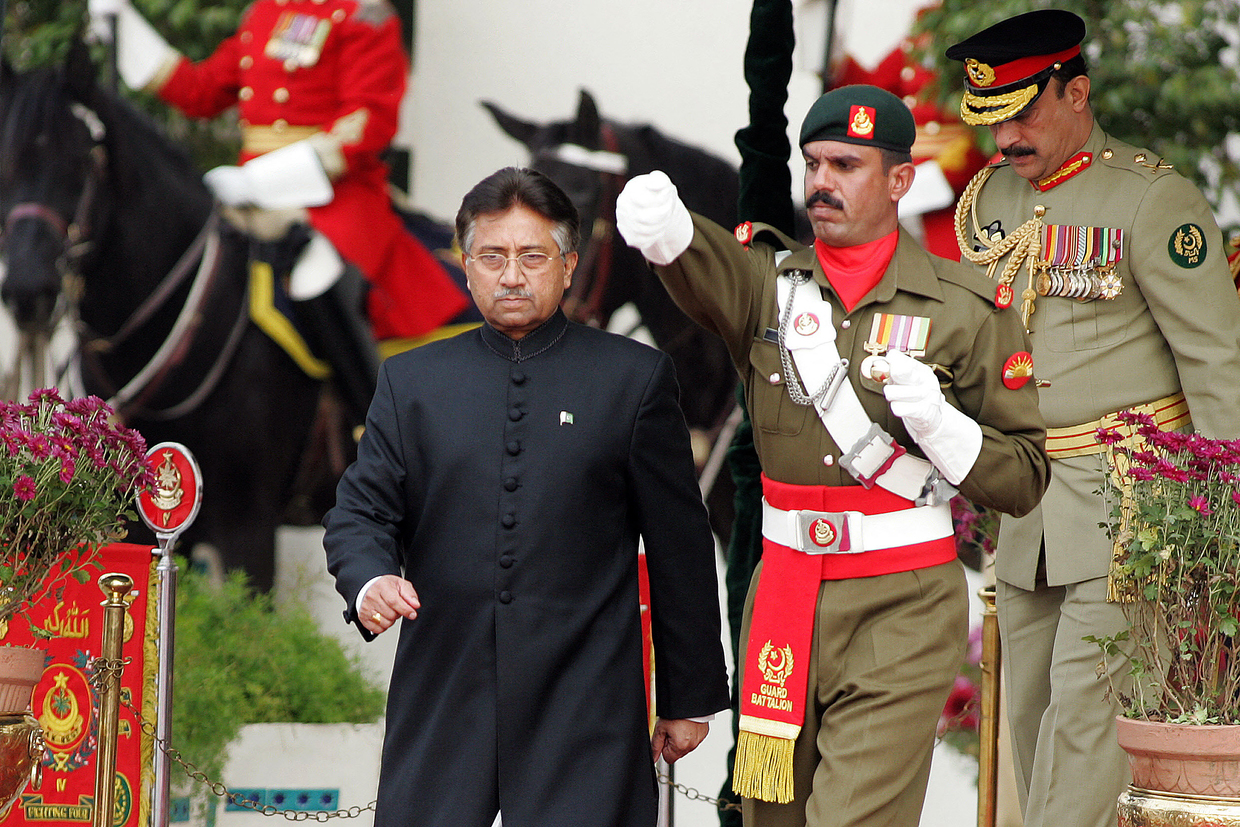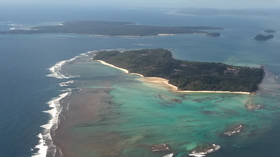Controversial coup leader & US ally: Who was ex-Pakistani President Pervez Musharraf?

General Pervez Musharraf, the controversial former Pakistani president who came to power in a bloodless coup and led his country during the early stages of Washington’s ‘war on terror’, passed away in Dubai at the age of 79 on Sunday.
He had been suffering from amyloidosis, a rare incurable condition connected with the build-up of proteins in organs and tissues. The former leader had been living in self-imposed exile in the UAE since 2016, while fending off political assassination and treason charges in his home country.
Born to Muslim Urdu-speaking parents in 1943 in Delhi, Musharraf and his family moved to Karachi following the partition of India and Pakistan. As a young man, he joined the military and fought in the 1965 war against India.
After moving up the ranks, he was appointed chief of Army Staff in October 1998 by then-Prime Minister Nawaz Sharif. Musharraf’s tenure as military leader was tested a year later, when the Indian Army repelled a Pakistani incursion in the Kargil district of disputed Kashmir. According to Musharraf’s 2006 memoir, the defeat strained his relations with the PM as he and Sharif blamed each other for the debacle.
On October 12, 1999, the general toppled the government hours after Sharif ordered his dismissal. In his first address to the nation after seizing power, Musharraf declared that the armed forces were “the last remaining viable institution” that could ensure stability and unity in the country.
Musharraf governed Pakistan for nearly ten years, simultaneously serving as president and army chief. He supported the 2001 US-led invasion of neighboring Afghanistan, becoming Washington’s main ally in the region. Years later, he argued that the invasion was inevitable and that joining Washington’s cause served his country’s interests.
The West, in turn, backed Musharraf’s government, despite his opponents labeling him a dictator. Washington provided Pakistan with nearly $12 billion in military and economic aid during Musharraf’s rule, with $6 billion going to the army.
Musharraf himself was accused of misusing Western funds and maintaining ties with Islamist groups. He denied these allegations, insisting that Pakistan had been a victim of terrorism, not a supporter.
During and after his time in office, Musharraf narrowly escaped several attempts on his life. In 2003, a bomb blew up a bridge minutes after his motorcade passed it. A little over a week later, two trucks rigged with explosives rammed his convoy. In 2014, a bomb went off on a road where he was due to travel.
At home, Musharraf’s rule saw economic growth and a rise in investments. As president, he increased spending on education and fought to boost the literacy rate. Despite the protests from religious conservatives, he enacted a law that sought to better protect women against rape.
The opposition repeatedly accused Musharraf of human rights abuses and vote-rigging. In 2007, he declared a state of emergency, suspending the constitution, purging the judiciary, and cracking down on the media. Although the emergency was lifted a month later following pressure from the US, it significantly damaged Musharraf’s reputation and eventually led to his downfall.
He lost the parliamentary election the following year and stepped down under the threat of impeachment in August 2008. Musharraf went into self-imposed exile in London. In 2010, he apologized for making “wrong decisions” in the past. “I have learned my lessons and I am very sure I will not repeat them again,” he said.
Musharraf returned to Pakistan in 2013 to try to run for another term. “Whenever I see danger, I jump into it, and then I realize it is not a danger,” the general said on the campaign trail, referring to the threats from Islamists. However, a court disqualified him, citing his actions during emergency rule. Musharraf offered another apology, but also defended his record. “Whatever I did, I did it for the country. It could be wrong but there was no bad intention in it.”

In 2013, Musharraf was charged with conspiracy to murder opposition leader Benazir Bhutto, who was killed in a suicide bombing attack in 2007. Musharraf denied the accusations and blamed the Taliban. In 2017, ten years after Bhutto’s death, Noor Wali Mehsud, the leader of the Pakistani Taliban, reportedly admitted in a book that the militants were involved in the assassination.
In 2014, Musharraf was also charged with treason for suspending the constitution in 2007. The former president insisted that the charges against him were politically motivated. After living three years under a travel ban, in 2016, he was allowed to fly to Dubai for medical treatment and had not returned since.
In 2019, the country’s top court sentenced him to death in absentia for trampling the constitution, sparking backlash from military officials. “An ex-Army Chief, Chairman Joint Chief of Staff Committee and President of Pakistan, who has served the country for over 40 years, fought wars for the defense of the country can surely never be a traitor,” the Inter Services Public Relations (ISPR), the media wing of the Pakistan Armed Forces, said in a statement at the time.
In a video address from a hospital bed, Musharraf called the case against him “absolutely baseless.” He appealed the death sentence, which was overturned in 2020. A three-judge high court panel in the city of Lahore ruled that the prosecution was unconstitutional.













